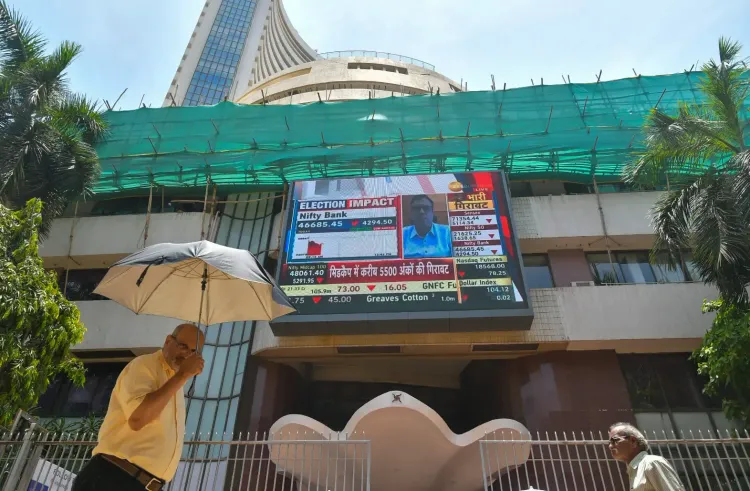Why Did Nifty and Sensex Plummet This Week?

Synopsis
Key Takeaways
- Nifty and Sensex saw their steepest weekly decline in six months.
- Concerns over H-1B visa fees and US tariffs impacted investor sentiment.
- Midcap and small-cap indices fell more sharply.
- The Nifty index fell below its 20-week EMA.
- Market valuations depend on corporate earnings recovery.
Mumbai, Sep 27 (NationPress) This week saw the Indian equity benchmarks experience their most significant decline in six months, marking a sixth consecutive session of downturns, driven by worries regarding the H-1B visa fee increase and US pharmaceutical tariffs.
The Nifty and Sensex dropped approximately 2.50 percent and 2.54 percent, respectively, as the IT and pharmaceutical sectors faced heightened selling pressure.
Midcap and small-cap indices encountered even more intense selling, plummeting 4.38 percent and 4.27 percent for the week due to inflated valuations.
Early in the week, the IT index faced pressure from fears over rising H-1B visa expenses. On Friday, shares of Indian pharmaceutical firms declined after US President Donald Trump unveiled tariffs of up to 100 percent on imports of branded and patented pharmaceutical products, effective from October 1.
Consequently, the Nifty index reversed the gains from the past two weeks, falling below its 20-week EMA, indicating a potential weakening trend in the short term.
By Friday, the Nifty had lost 236.15 points, closing at 24,654.70, barely staying above its immediate support zone of 24,500–24,550.
Analysts expect sellers to dominate unless the index surpasses the 24,750–24,850 resistance zone.
Fundamentals across banking, FMCG, and automotive sectors remain promising, buoyed by domestic policy support and macroeconomic stability.
Nevertheless, the continuation of current market valuations largely depends on a visible recovery in corporate earnings and the resolution of India-US trade tensions, according to analysts.
Meanwhile, the rupee continued to depreciate, pressured by ongoing FII outflows and increased geopolitical risks arising from US trade policies.
Investor attention will be directed towards upcoming US economic metrics, especially inflation and employment figures. Domestically, the RBI's policy decisions and industrial production statistics will be crucial in influencing market sentiment.









